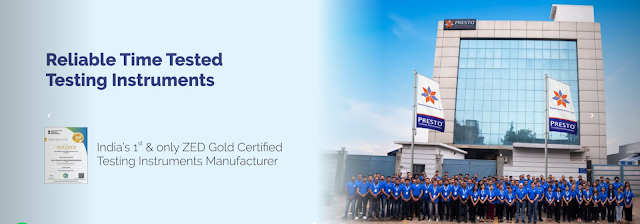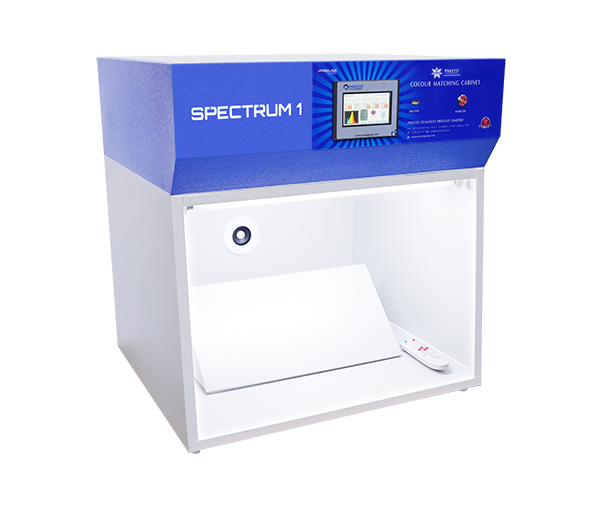The Role of Testing Equipment in Ensuring Product Quality
In the realm of manufacturing, ensuring product quality is paramount. From automobiles to pharmaceuticals, every industry relies on the precision and accuracy of testing equipment to maintain standards and meet regulatory requirements. In this article, we delve into the world of testing equipment, exploring its significance, types, benefits, and future trends.
Introduction to Testing Equipment
Testing equipment encompasses a diverse range of instruments designed to assess the properties, performance, and quality of materials and products. Whether it's evaluating the tensile strength of a metal alloy or analyzing the purity of a chemical compound, testing equipment plays a crucial role in various industries.
Importance of Quality Testing
Quality testing is essential for ensuring that products meet specified standards and comply with regulatory requirements. It helps identify defects, assess performance, and validate the integrity of materials and components. By conducting rigorous testing, manufacturers can enhance product reliability, minimize risks, and safeguard consumer safety.
Types of Testing Equipment
Mechanical Testing Equipment
Mechanical testing equipments is used to evaluate the mechanical properties of materials, such as strength, hardness, and elasticity. Common examples include tensile testers, hardness testers, and impact testers, which are employed in industries like aerospace, automotive, and construction.
Chemical Testing Equipment
Chemical testing equipment is utilized to analyze the composition, purity, and chemical properties of substances. Instruments like spectrophotometers, chromatographs, and titrators enable precise measurements and qualitative analysis, benefiting sectors like pharmaceuticals, food processing, and environmental monitoring.
Electrical Testing Equipment
Electrical testing equipment is employed to assess the electrical characteristics and performance of electronic devices and components. Multimeters, oscilloscopes, and power analyzers aid in measuring voltage, current, resistance, and other parameters, supporting industries such as electronics manufacturing and telecommunications.
Key Features to Look for in Lab Testing Equipment
When selecting lab testing equipment, it's essential to consider factors such as accuracy, precision, reliability, and user-friendliness. Additionally, compatibility with industry standards, ease of calibration, and ongoing technical support are crucial aspects to evaluate.
Benefits of Using Lab Testing Equipment
Investing in lab testing equipment offers numerous benefits, including:
- Improved product quality and consistency
- Enhanced efficiency and productivity
- Compliance with regulatory requirements
- Reduction of costly errors and rework
- Facilitation of research and development initiatives
Industries That Rely on Testing Equipment
Various industries rely on testing equipment for quality assurance and research purposes, including:
- Automotive
- Aerospace
- Pharmaceutical
- Food and beverage
- Construction
- Electronics
- Environmental
Innovations in Testing Equipment Technology
Advancements in technology have led to the development of innovative testing equipment with enhanced capabilities, such as:
- Integration of IoT (Internet of Things) for remote monitoring and data analysis
- Automation and robotics for streamlined testing processes
- Miniaturization and portability for on-site testing applications
- Artificial intelligence and machine learning for predictive maintenance and data-driven insights
Considerations for Purchasing Testing Equipment
When purchasing testing equipment, it's essential to consider factors such as:
- Specific testing requirements and applications
- Budget constraints and total cost of ownership
- Vendor reputation and after-sales support
- Compliance with industry standards and regulations
- Potential for future scalability and upgrades
Maintenance and Calibration of Testing Equipment
Regular maintenance and calibration are critical for ensuring the accuracy and reliability of testing equipment. Establishing a comprehensive maintenance schedule, conducting calibration checks, and adhering to manufacturer guidelines are essential practices to prolong equipment lifespan and maintain optimal performance.
Future Trends in Testing Equipment
The future of testing equipment is marked by continuous innovation and technological advancements, including:
- Integration of advanced sensors and data analytics for real-time insights
- Adoption of cloud-based platforms for data management and collaboration
- Development of customizable testing solutions tailored to specific industry needs
- Emphasis on sustainability and eco-friendly testing practices
Conclusion
In conclusion, testing equipment plays a vital role in upholding product quality, ensuring regulatory compliance, and driving innovation across various industries. By investing in high-quality testing equipment and embracing technological advancements, manufacturers can stay ahead of the curve and deliver superior products to the market.



Paper Testing Instruments Manufacturer - Paper Testing Instruments Manufacturer specializes in creating tools and equipment used to assess the quality and properties of paper. These instruments measure factors like thickness, strength, brightness, and moisture content, ensuring paper meets industry standards. Their products are essential for paper mills, printing companies, and quality control labs.
ReplyDelete